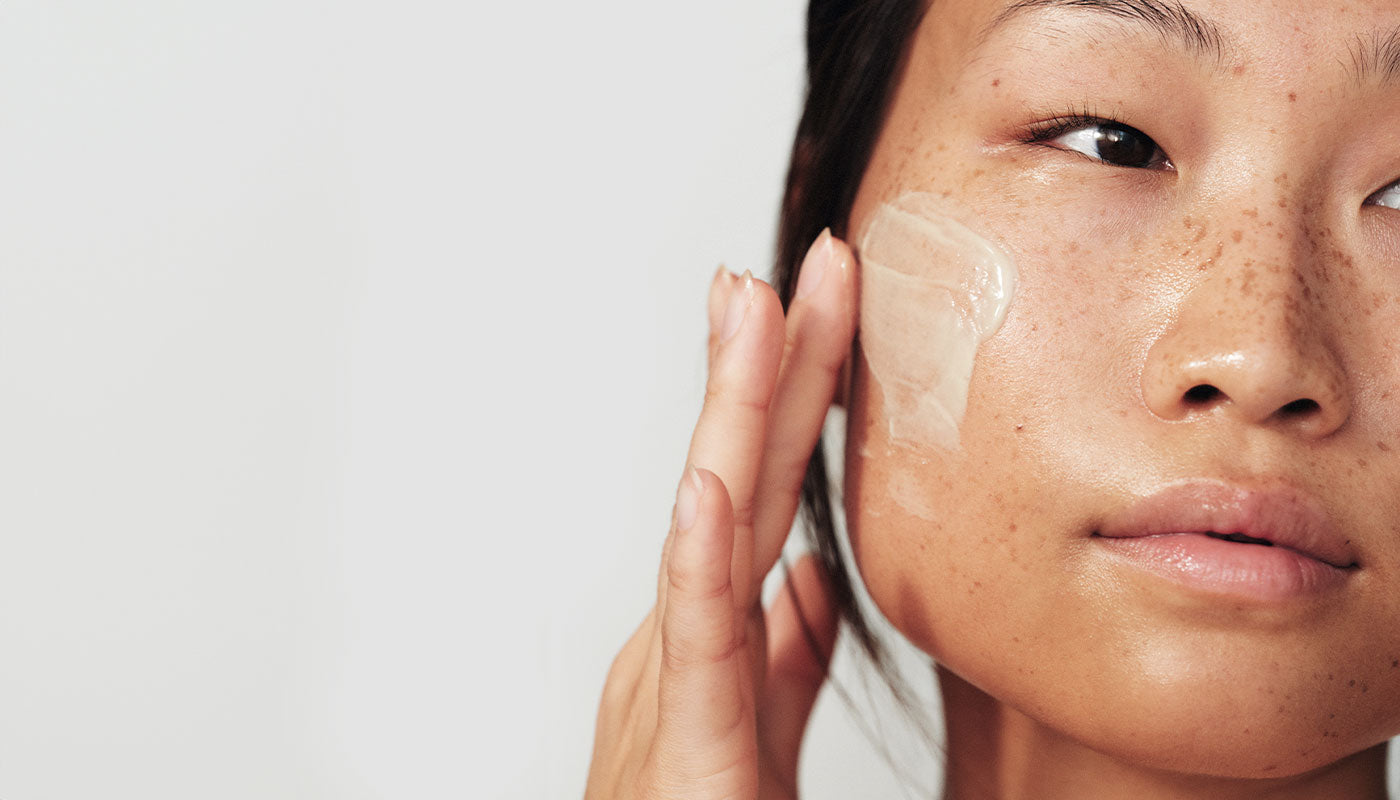3 mins read
The science behind dark spots


Dark marks, brown spots & more: hyperpigmentation demystified.
Brown spots have a major influence on how old people think we are. In fact, one study showed that unbalanced skin tone can make a person look more than 12 years older! The big questions: where do they come from, and what can you do about them?
It helps to understand the science behind brown spots. The official term for brown spots and other forms of skin discolouration is hyperpigmentation. Unlike freckles, hyperpigmentation doesn’t fade in winter and, unfortunately, it becomes more visible as we age.
How is uneven skin tone caused?
Sun exposure: When your skin is repeatedly exposed to UV light, sun damage occurs. Brown spots and uneven skin tone develop as a result of too much melanin being produced to help protect your skin from UV light.
Pollution: New research indicates that airborne pollution particles that become lodged deep in the skin, oxidises the surrounding tissue causing irritation that leads to uneven pigmentation. Rising levels of airborne soot and traffic-generated pollution cause a 20-25% increase in dark spots – adding up to 20 years to your perceived age!
Hormones: Melasma is hormone-related hyperpigmentation caused by increased hormone stimulation. It’s most commonly experienced by women who are pregnant (which is why it’s also known as the “mask of pregnancy”) or taking contraceptives but can also be a reaction to cosmetics or medications.
Post-Inflammatory Hyperpigmentation: This type of dark spot is the result of inflammation or injury to the skin (for example, from acne, deep cuts or burns). Susceptibility to PIH typically increases with age, as cell turnover slows with age, and it takes dark spots longer to move to skin’s surface and slough off.
Still not sure what type of hyperpigmentation you have?
Call in the experts
Ask a Dermalogica skin therapist for a free Face Mapping® skin analysis and consultation to get to the root of your brown spots. Knowing your personal triggers will reveal the best treatment. They can even recommend professional treatments that can help you banish dark spots faster!
Apply spf daily
Unprotected sun exposure is the number one culprit behind hyperpigmentation. Applying a sunscreen or moisturiser with a Broad-Spectrum SPF of at least 30, is the easiest way to help prevent new dark spots and it also helps control the colour intensity of the spots you can see. Wear it daily to make the most of the treatments you try. 30 minutes unprotected in the sun can undo a month’s worth of effort in fighting hyperpigmentation Tip: Try our PowerBright Moisturiser SPF50 for protection and treatment of pigmentation.
Exfoliate regularly
Exfoliation is the perfect way to treat existing hyperpigmentation by first sloughing off dead, dulling skin cells at the surface. This clears the path for the ingredients in your serums and moisturisers to better penetrate the skin. Tip: Look for a skin peel that includes skin brightening actives and acids whilst minimising irritation PowerBright Dark Spot Peel.
Actively treat pigmentation
Use the right ingredients to tackle the cause and formation of your pigmentation. If pollution is your trigger, seek out products that contain Activated Charcoal like Daily Superfoliant.
PowerBright Dark Spot Serum is formulated with high-tech ingredients such as Niacinamide and Hexylresorcinol that work together to reduce excess pigment in the skin. You’ll also find these actives in PowerBright Overnight Cream for round the clock treatment, fading dark spots whilst you sleep.
As one of the most potent antioxidants available, Vitamin C is highly effective at scavenging free radicals. It also helps your skin to defend itself against future oxidative stress – effectively brightening skin from inside and out. Just make sure to choose a Vitamin C formula that’s both ultra-stable and highly bioavailable like BioLumin-C Serum.
Be patient
There’s no quick fix for hyperpigmentation: depending on how deep your pigmentation is in the skin it can take some time before you see progress. Additionally, some spots may look darker before they lighten; this is because they gradually rise to the skin’s surface as you continue to exfoliate. But stick with it, and you’ll eventually see brighter, firmer, more radiant skin!
Kickstart your battle against brown spots by clicking here to speak to a Dermalogica skin therapist for a free Face Mapping® skin analysis. They will home in on what's causing your dark spots and recommend a plan of action. Tying in a professional series of treatments, such as peels, will help expedite results.



